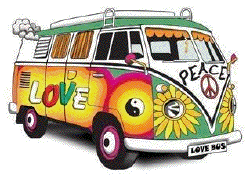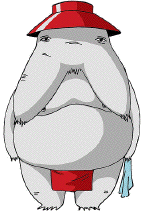
 Hypercamp in SF this weekend
Hypercamp in SF this weekend 
When I read the schedule for the Hacks/Hackers camp in SF this weekend I immediately wanted to be there. The goal of the weekend is to come up with some new iPad apps, but I think what's more important is the open newsroom format that they're exploring. When it's all said and done, I think it'll be far more important an innovation than any software that comes from the meeting.
http://unite.hackshackers.com/
I'm going to an event in Virginia on Sunday so I can't be in Calif this weekend, unfortunately. If you're going to be there, get ready for some fireworks. Putting a lot of writers and coders into a newsroom environment is going to cause some mind bombs to explode.
 What if Skype had an API?
What if Skype had an API? 
 I started keeping Skype running after reading a TechCrunch piece explaining how screen sharing works over Skype. I needed exactly this functionality to support a few friends who are new to blogging. To be able to see what's on their screen instead of relying on their description makes a huge difference.
I started keeping Skype running after reading a TechCrunch piece explaining how screen sharing works over Skype. I needed exactly this functionality to support a few friends who are new to blogging. To be able to see what's on their screen instead of relying on their description makes a huge difference.
Using Skype makes me wonder what if they gone in the direction that Twitter did, making it possible for status messages to scroll by in a River of News. It's amazingly close to what I consider the ideal configuration. A centralized name service with peer-to-peer updates.
But Skype was embedded in a large company, and who knows what kinds of pressure they were under. It certainly wasn't being run in an entrepreneurial way. Which led me to wonder how different things would have been if Skype had an API. A simple one that allowed you to push a message to another Skype user, and be able to catch a message flowing into the Skype client. Could have been great.
It's a lot like rssCloud or what Dropbox is doing. Sooner or later there will be a unifying layer that handles all real-time traffic through an open API that doesn't rely on central servers any more than the Internet itself does. It's coming, you can feel it.
Update: Skype does have an API.
 What makes a movie good?
What makes a movie good? 
 Over the last few days I've seen two movies, Harry Brown and Robin Hood.
Over the last few days I've seen two movies, Harry Brown and Robin Hood.
I thought Harry Brown was good, but didn't care for Robin Hood.
That got me thinking -- what is it about a movie that makes me like it, and the answer was surprisingly simple. First, the movie has to make me care about the characters. Second, they have to be true to who they are.
It's nice if something interesting happens in the movie, but not required. For example, I like Vicky Cristina Barcelona, because the characters are so interesting and lovely and so is the scenery. Movies can be like paintings. It's not the plot that matters so much as the colors and the feelings they inspire.
It also helps if I can project myself into the place of one or more of the main characters. What would it be like to be them? What would I do in their place?
If all this comes together, you stop feeling so much like you're in a theater watching a movie, and more like part of an unfolding story.
And if there is a resolution, as far as I'm concerned, it doesn't have to be a happy one. I respect movies that have a bitter or sad ending and pull it off. I also don't need a sense of closure. I like movies that leave you wondering at the end what happened. If it's annoying that's fine. I don't mind if a symphony ends in discord, as long as it makes sense. Real life stories often have unhappy outcomes, no need to tie off all the loose ends in movies, but I don't mind if they do.
I guess it all comes together in what we call suspension of disbelief, and I think it's different for everyone. That's why some people liked Robin Hood, and giggled and cheered at moments when the movie called for it. I didn't -- all the time I was aware I was in a theater, not in a story. Thinking about the time, and what I'd do later, and wanting to check my email.
I often criticize a movie for being predictable, but that's actually kind of bogus. I don't really mind if a movie is predictable. I only really care when the other things aren't working for it. If they didn't do enough with the characters to get me involved, to care one way or the other, what happens to them.
People have compared Harry Brown to Gran Torino -- but I couldn't figure out whether that movie was Clint Eastwood's tribute to Dirty Harry and the Man With No Name, or a mockery. I loved his early movies because his characters were interesting, consistent and deep. It's not so much that you come to care about the Clint Eastwood tough guy -- you don't, but you understand him. I didn't understand the main character in Gran Torino. He seemed shallow and unreal. Maybe if they had Ed Asner in his Lou Grant role play the vigilante, or the old man in Up, it might have made sense to me. ![]() ">
">



